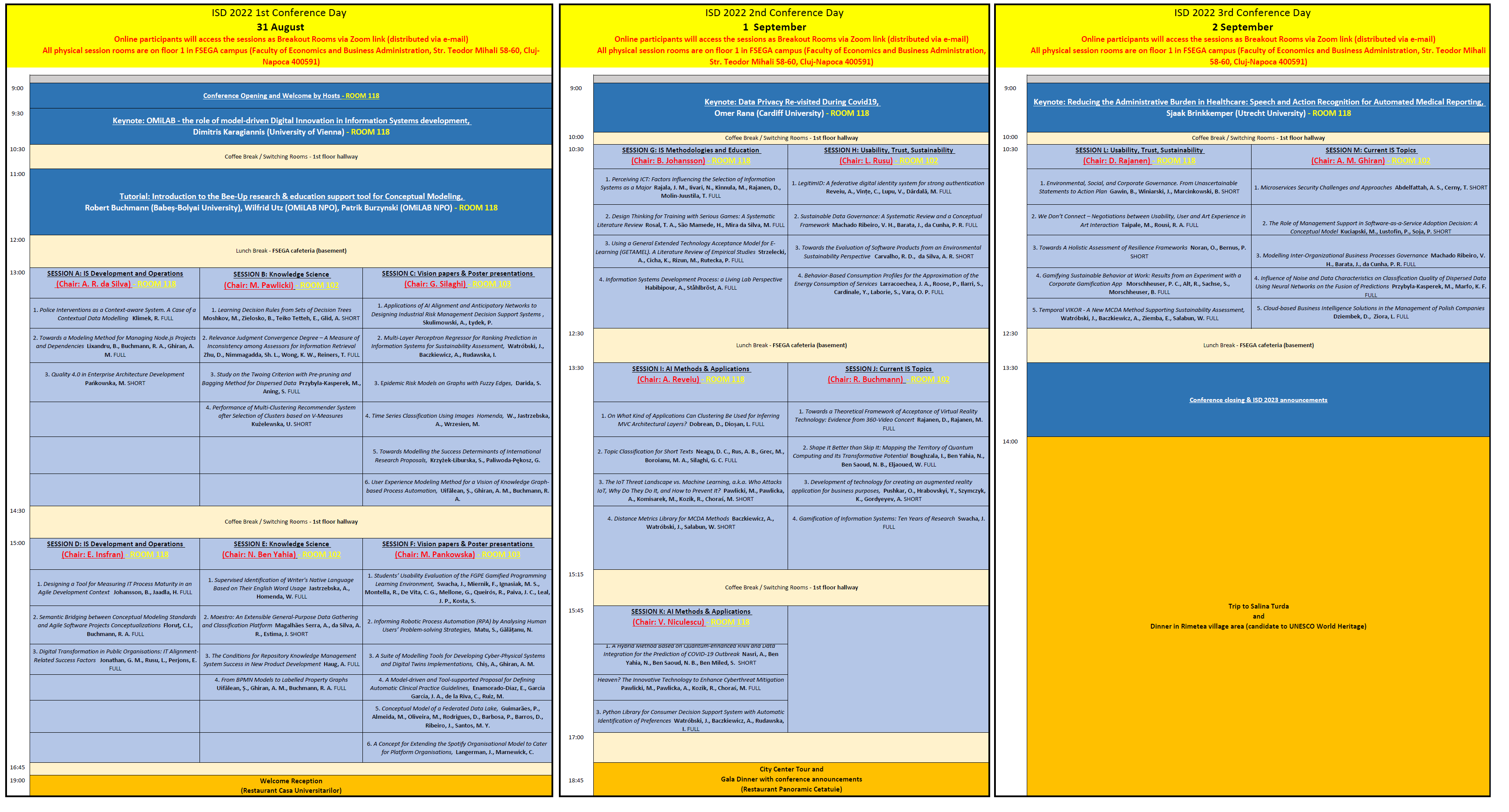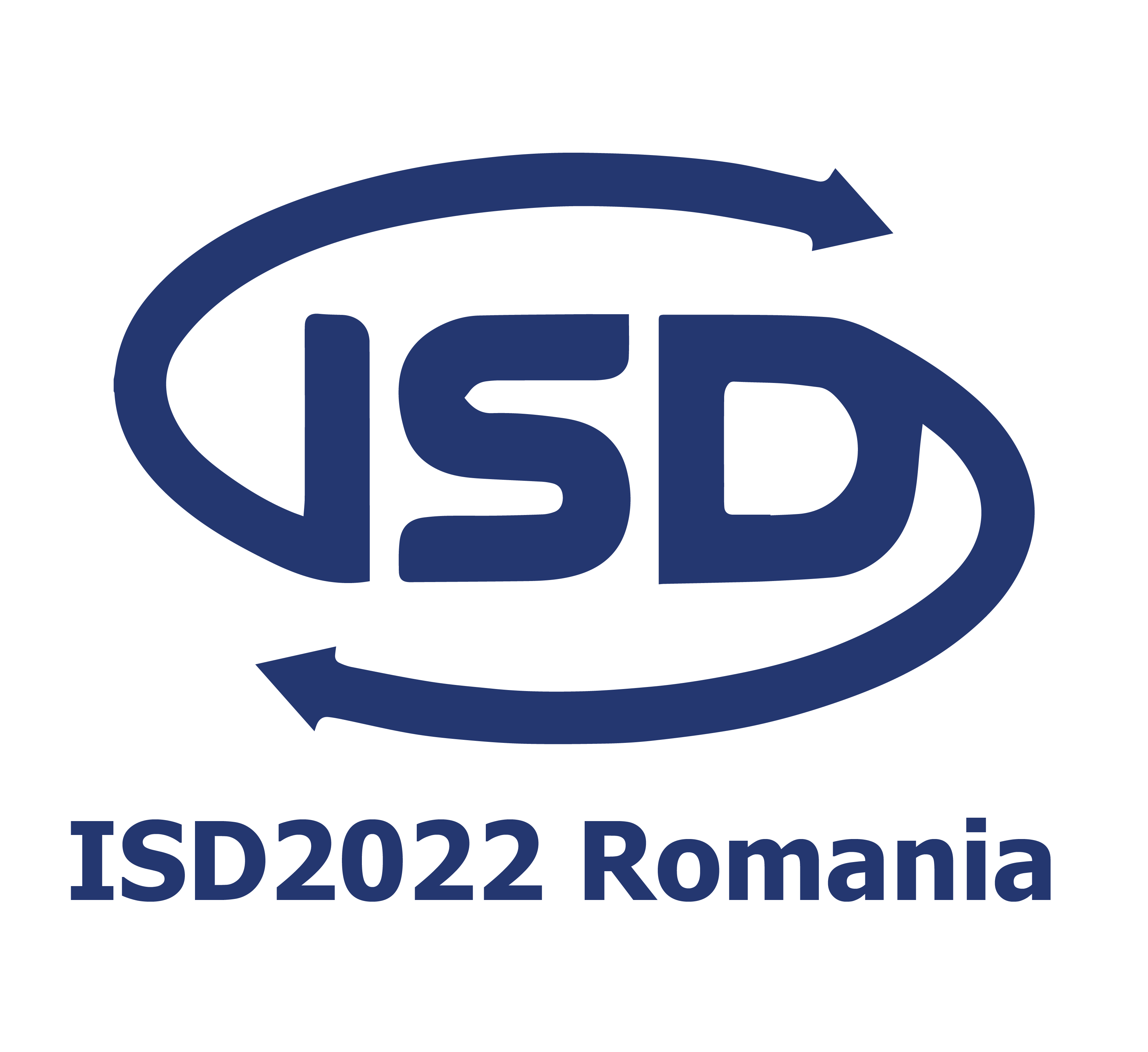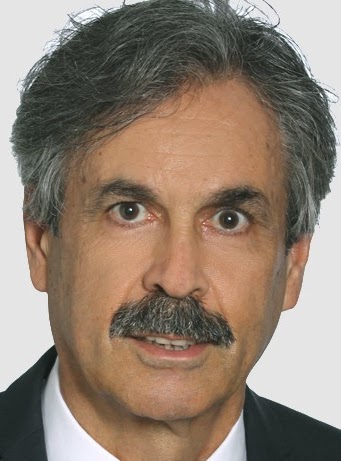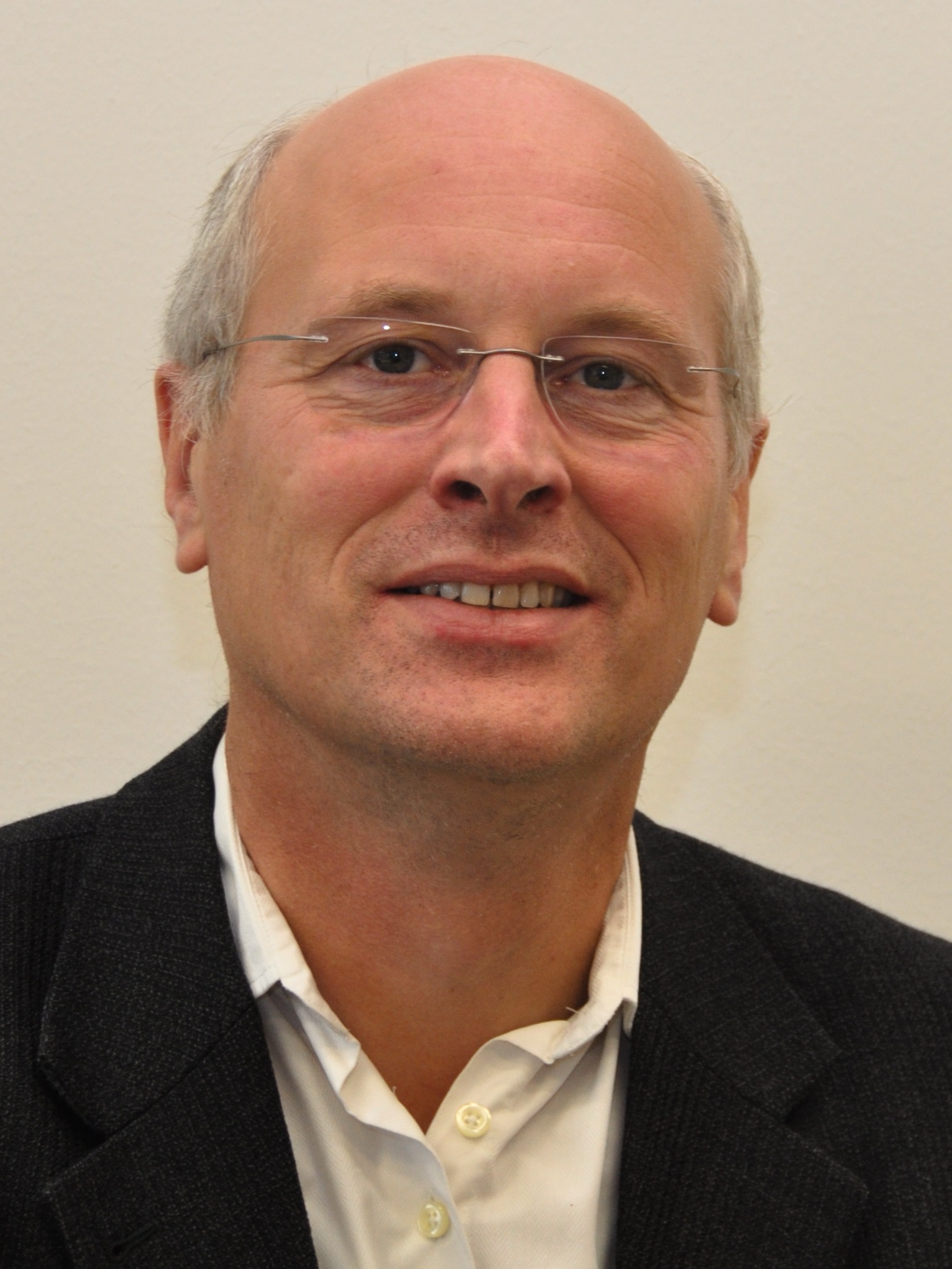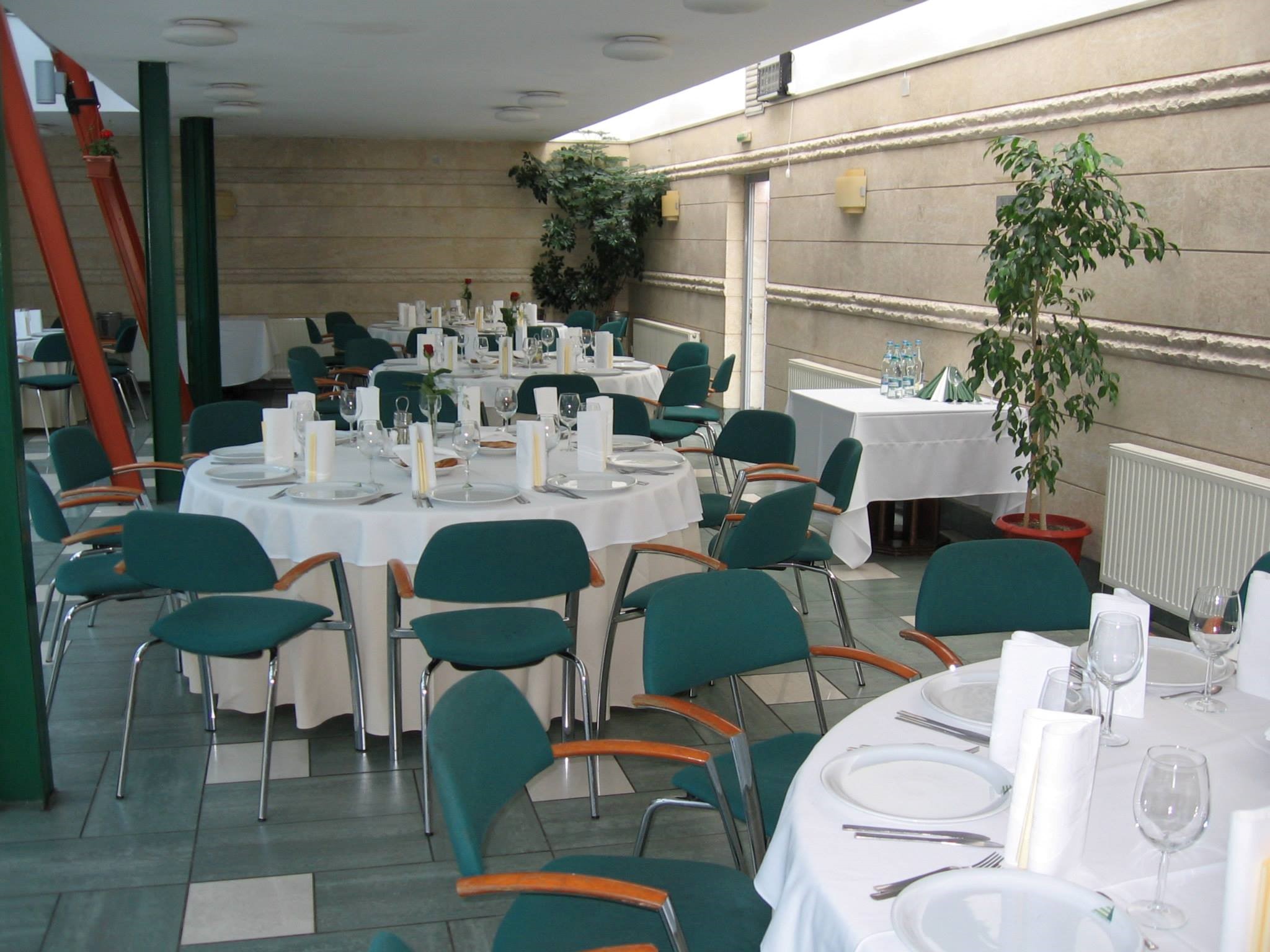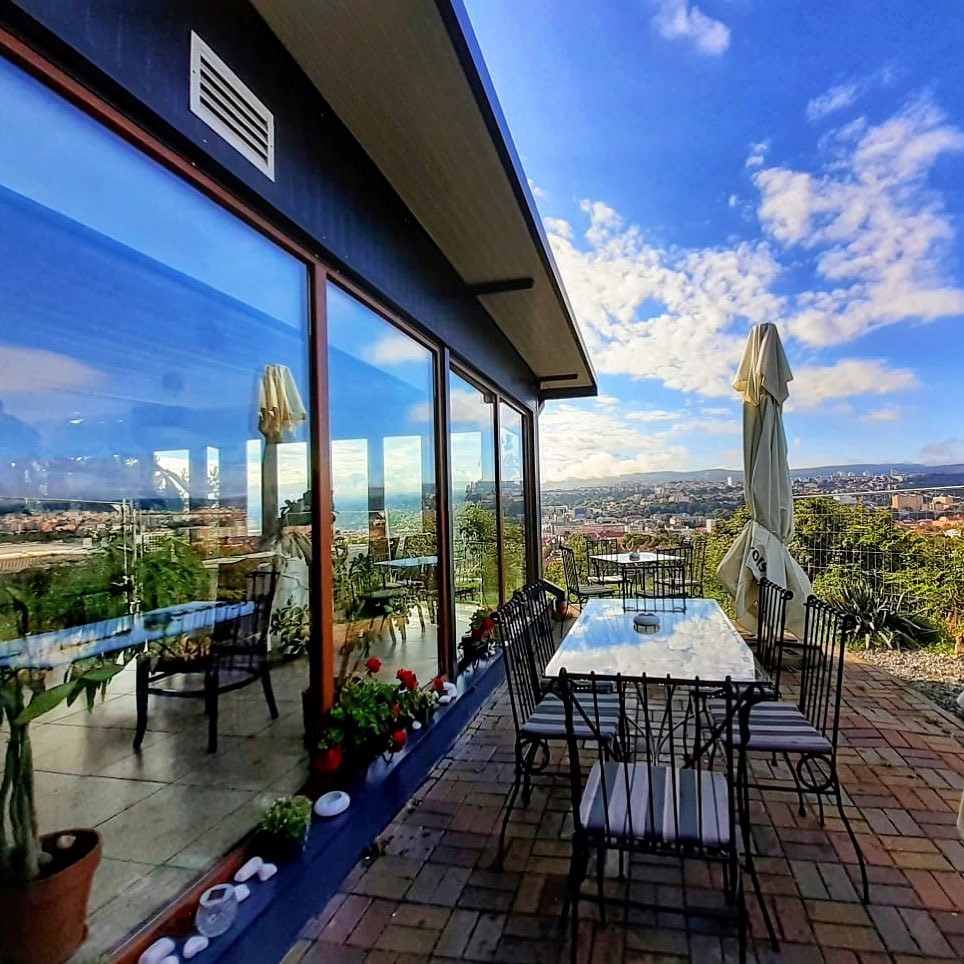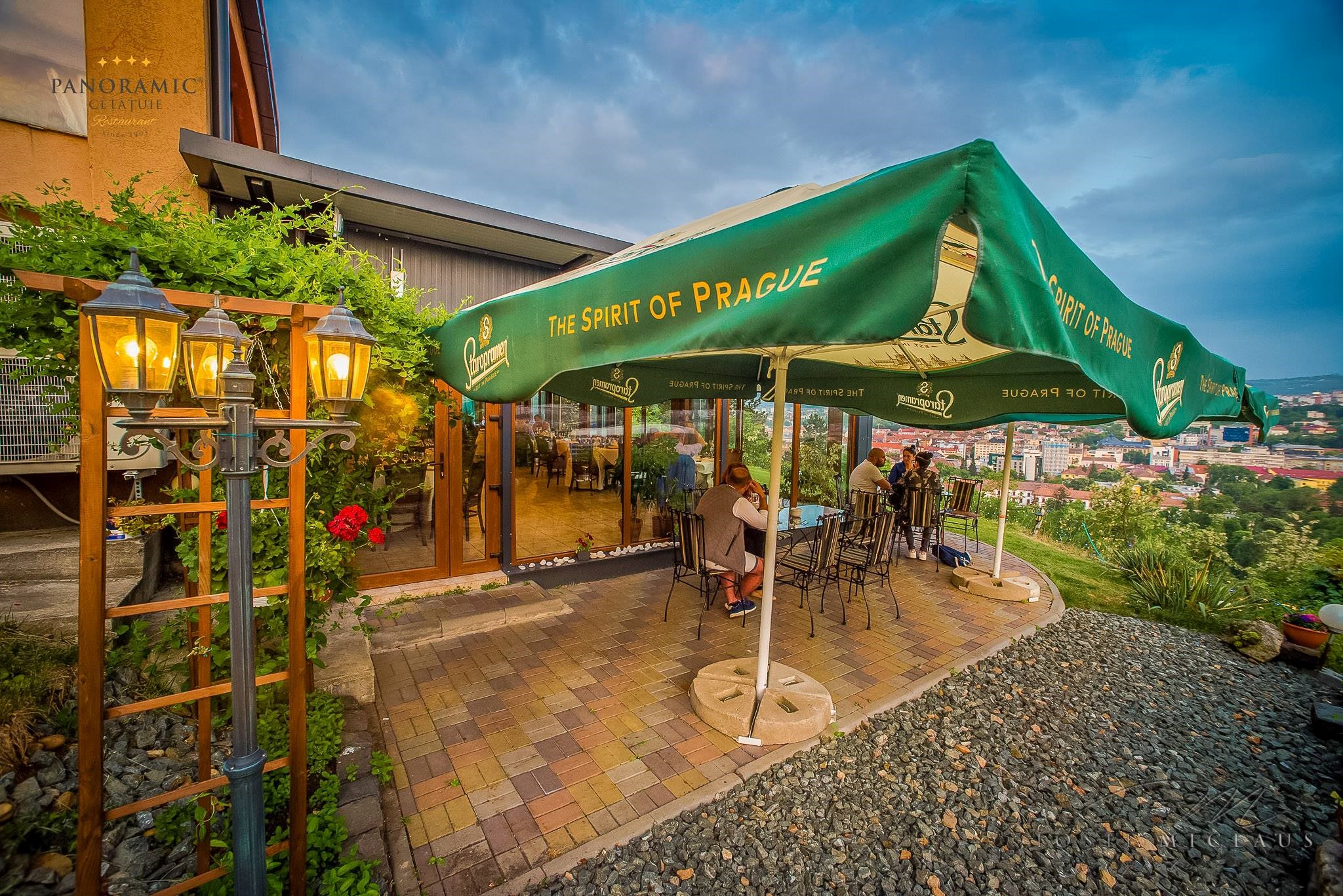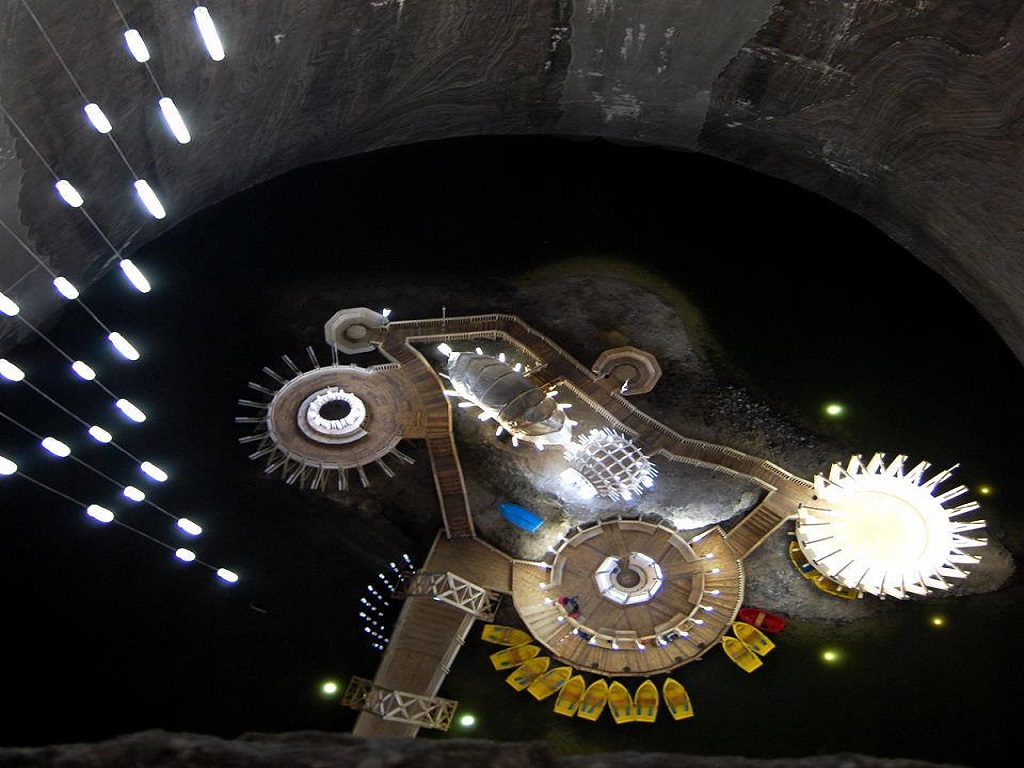Tutorial: How to develop and realize conceptual models? Introduction to the Bee-Up research & education support tool
Date: August 31 (check the program for more details)
Presenters
Robert Buchmann, Babeș-Bolyai University, Cluj Napoca, Romania, robert.buchmann@econ.ubbcluj.ro
Wilfrid Utz, OMiLAB NPO, Germany, wilfrid.utz@omilab.org
Patrik Burzynski, OMiLAB NPO, Germany, patrik.burzynski@omilab.org
Tutorial Description
The research field of Conceptual Modelling identifies models as artefacts describing an existing or proposed system, on an abstraction level that is adequate for a given purpose. Traditionally, modelling purposes have been rather implicit – e.g. documentation and sense-making, functions that have been recently challenged by IS scholars (Recker et al., 2021). A growing diversity of modelling purposes in the digitally-driven world reclaims more agile modelling methods and tools that can expand the value of conceptual models, and this value must be enabled on the appropriate level of conceptual specificity – to ensure that the design space fits the diversifying purposes (Karagiannis et al., 2019). This diversity was recently showcased in (Karagiannis et al., 2022) and became the basis of the Purpose-Specificity framework – a theoretical lens for framing and classifying novel modelling methods and tools (Buchmann, 2022).
The tutorial departs from this theoretical lens and introduces, and facilitates the practical use of, the Bee-Up multi-language modelling environment. This environment includes key features that increase the value of models beyond their basic function (as diagrammatic documentation/ communication support). Bee-Up supports modelling with several established languages – BPMN, EPC, ER, UML, Petri Nets – further enriched with semantic links and modelling functionality that are enabled at metamodel level. Therefore, it is not limited to diagramming, but also facilitates “model value” through features for model analysis & simulation (e.g. interactive Petri Nets), transformation (e.g. to knowledge graphs or database schemas), execution and integration with external systems (e.g. cyber-physical systems). A selection of these will be demonstrated during the tutorial in tandem with theoretical aspects about what is under the hood of the Bee-Up model processing capabilities.
The theoretical part will highlight the CoChaCo method (Karagiannis et al., 2019) – a vocabulary and method for cataloguing relevant concepts and relating them to modelling purposes, to make conceptual structures available as a knowledge representation for both human and machine interpretation (Karagiannis et al., 2019b) thus expanding the role of models for the digital era.
Bee-Up is an educational and research support tool available at https://bee-up.omilab.org.
Target Audience & Knowledge Prerequisites
The tutorial targets doctoral students, researchers, and practitioners in the area of Conceptual Modelling. On an introductory level, Bee-Up supports modelling with established notations and languages (e.g. BPMN, UML, Petri Nets, ER, EPC) for the purpose of documentation and sense-making of described systems/phenomena. However, researchers in fields such as digital engineering or digital innovation need to experiment with a variety of modelling purposes, to align a business-oriented view with a technological one. The tutorial was designed having in mind the needs of researchers employing Conceptual Modelling in their research toolkit – for empirical research (e.g. modeling for case studies), design-oriented research (e.g. conceptualizing new IS phenomena towards new design decisions) or artifact-building work (building new tools or functionality).
Basic background in computer science or business informatics is recommended. Basic familiarity with established modelling languages (e.g. BPMN, UML, ER, Petri Nets) is expected – to this, the tutorial will add insight about novel possibilities of processing such models, if treated as knowledge structures and not only as diagramming methods.
Learning Objectives
Attendees of the tutorial will be guided through a hands-on application of this tool in a selected scenario to:
- Understand how to derive value from model artifacts, beyond the traditional goal of graphical documentation,
- Gain insights about the possibility to convert visual models into RDF knowledge graphs,
- Learn how to generate SQL schemas from the Bee-Up environment,
- Understand the role of conceptual models in determining cyber-physical behavior,
- Enrich theoretical knowledge about Conceptual Modelling and its new functions in the digital era.
The attendees of the tutorial are encouraged to follow hands-on and contribute actively to the outcomes of the tutorial, while being actively supported by the presenters. The results achieved during the tutorial will be shared with the attendees for further reflection on the applicability and potential of the proposed approach.
Tutorial Approach And Materials
The tutorial is designed for a 60-minute session. It has a strong hands-on focus, preceded by a brief theoretical introduction and an overview of the Bee-Up tool, its mission and design rationale, and followed by theoretical reflection of what is under the hood of the tool and how researchers can benefit – not only from using the tool but also from its underlying conceptualization.
The attendees of the tutorial are encouraged to follow hands-on and contribute actively to the outcomes of the tutorial, while being actively supported by the presenters. The results achieved during the tutorial will be shared with the attendees for further reflection on the applicability and potential of the proposed approach.
Attendees are advised to install the Bee-Up Toolkit (https://bee-up.omilab.org) and the CoChaCo4ADOxx (https://www.omilab.org/activities/cochaco.html) on their laptop/notebook, in order to follow the hands-on session. Support for the installation is offered in case problems occur.
Both Bee-Up and CoChaCo4ADOxx are open-source and free of charge.
Attendees will receive a handout with the tutorial content and export files of pre-prepared models, to follow the practical session at a later point if desired.
References
- R. A. Buchmann (2022) “The Purpose-Specificity Framework for Domain-Specific Conceptual Modeling”, in Domain-specific conceptual modeling: Concepts, Methods and ADOxx Tools, Springer, pp. 67-92.
- D. Karagiannis, R. A. Buchmann, P. Burzynski, U. Reimer, and M. Walch (2016) “Fundamental Conceptual Modeling Languages in OMiLAB,” in Domain-Specific Conceptual Modeling, Springer Cham, pp. 3–30.
- D. Karagiannis, P. Burzynski, W. Utz, and R. A. Buchmann (2019) “A metamodeling approach to support the engineering of modeling method requirements,” in Proceedings of the IEEE International Conference on Requirements Engineering, 2019, South Korea, pp. 199–210, IEEE, 2019.
- D. Karagiannis, M. Lee, K. Hinkelmann, and W. Utz (2022) Domain-specific conceptual modeling: Concepts, Methods and ADOxx Tools, Springer, 2022
- D. Karagiannis, D. Bork, and W. Utz (2019b) “Metamodels as a Conceptual Structure: Some Semantical and Syntactical Operations,” in The Art of Structuring, Springer, pp. 75-86.
- J. Recker, R. Lukyanenko, M. Jabbari, B. M. Samuel, and A. Castellanos (2021). From Representation to Mediation: A New Agenda for Conceptual Modeling Research in a Digital World. MIS Quarterly, 45(1), 269-300
